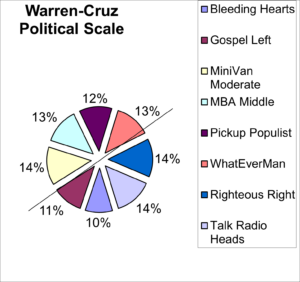How did we get into this mess?
by Bart Binning. Ed. D.
Charles Krauthammer, before his death in 2018, wrote “conservatives think liberals are stupid, liberals think conservatives are evil.” Neither respect the other. Stated another way, conservatives and liberals tend to speak different languages. To paraphrase John Gray’s 1992 book: Conservatives are from Mars, Liberals are from Venus. Different definitions for a word depending on the speaker’s world vision is relatively new (this century) and it gets in the way of accountability and transparency – if we don’t speak the same language, we probably cannot identify the problem, so how can we agree on a solution?
This problem about language has existed for at least 20 years, and there is not much to suggest that people think any differently today. For example, Steve Kelman wrote in a blog originally posted on October 10, 2010 “Contrary to what everyone believes … there may be tradeoffs between accountability/ transparency on the one hand, and performance improvement on the other.”
Accountability and transparency are principles that almost everyone agrees are good, especially in governance. There is ample evidence that when a leader can create a “safe zone” where subordinates can discuss problems without fear or punishment, these discussions can create significant efficiencies and savings. However, we live in a punishment-oriented world of politics and big media where there is an assumption of a zero-sum game, meaning that one can benefit only at the expense of another.
Kelman concludes his post by saying: ”Given that “accountability” and “transparency” are like Mom and Apple Pie, few people want to acknowledge these tradeoffs. This is yet another barrier to improving the performance of government.”
Another problem is that this is a country with no dominant way of thinking about reality. The marketing maxim is that we tend to believe what our neighbors tend to believe. To the extent there is a homogeneous population, no problem. However, the United States is a melting-pot with dozens of disparate population groupings. In many ways there is no such thing as a Common American. Differences were as expressed in the Warren- Cruz Political Scale (middle of the road – 52%,
Liberal – 21%: Conservative – 28%)
So… one possible solution: Come back to speaking a common language, one in which a word has the same meaning regardless of personal philosophy or world view. One would think that an appropriate definition to start with is the definition of the word “Truth”.
If the question is: “What is the Truth?” As noun, the “truth” can be defined by Webster’s as “the quality or state of being true”. (When the dictionary uses a word to define itself, we know there is trouble ahead.)
It turns out that the concept of Truth is one of the six basic questions philosophers are supposed to answer. Five of the six questions have entire fields of study devoted to the particular question….
- What is Reality (metaphysics)
- What is Knowledge (epistemology)
- What is the proper way to discuss (logic)
- What is Good (ethics)
- What is Beauty (esthetics)
- What is Truth (in part, Truth depends on the Philosophical construct to which you follow).
Since we do not have a single field of study devoted to defining the Truth, or a single way of defining the Truth, we have a problem. The truth depends on your philosophical outlook. For example:
- To a classicist, the Truth is what the experts say is the Truth.
- To a pragmatistic, the Truth is what most everyone else says is the Truth.
- To an existentialist, the Truth is what I say is the Truth.
- To a Thomist (follower of Thomas Aquanis) the Truth is what God says is the Truth.
- And then there is the “Correspondence Theory of Truth” which says that Truth is that which corresponds with reality. To be more precise, truth is a quality that applies to beliefs, statements and propositions which describe reality the way it actually is… But what is Reality?
If truth is reality, and reality is defined by the press or politicians according to their philosophical construct, then, do we have a “Catch 22” situation?
The thing I like about Rotary is that is a place where we can discuss.
So Let Us Discuss…



Thanks for the interesting and thought-proving article, Bart!